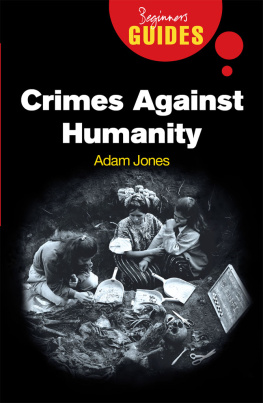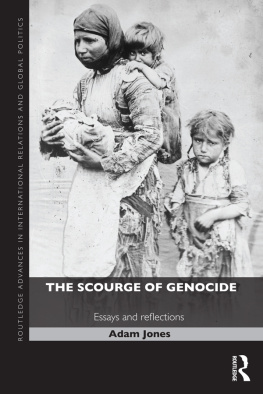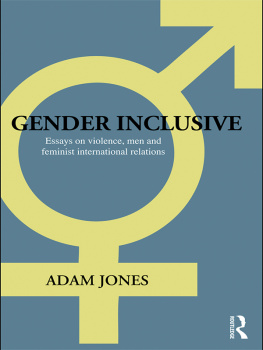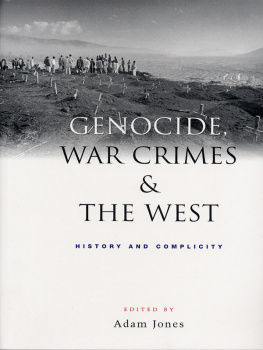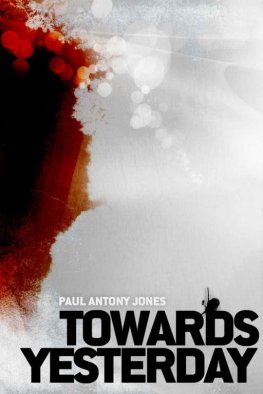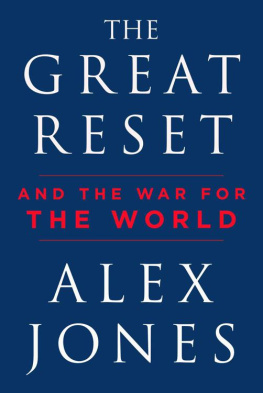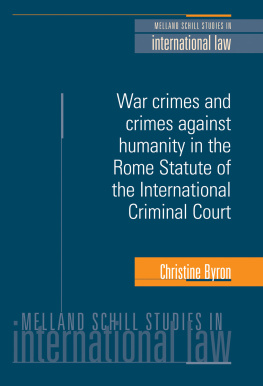Crimes Against
Humanity
A Beginners Guide
ONEWORLD BEGINNERS GUIDES combine an original, inventive, and engaging approach with expert analysis on subjects ranging from art and history to religion and politics, and everything in between. Innovative and affordable, books in the series are perfect for anyone curious about the way the world works and the big ideas of our time.
aesthetics
africa
anarchism
aquinas
art
artificial intelligence
the bahai faith
the beat generation
biodiversity
bioterror & biowarfare
the brain
british politics
the buddha
cancer
censorship
christianity
civil liberties
classical music
climate change
cloning
cold war
conservation
crimes against humanity
criminal psychology
critical thinking
daoism
democracy
descartes
dyslexia
energy
engineering
the enlightenment
epistemology
evolution
evolutionary psychology
existentialism
fair trade
feminism
forensic science
french literature
french revolution
genetics
global terrorism
hinduism
history of science
humanism
huxley
islamic philosophy
journalism
judaism
lacan
life in the universe
literary theory
machiavelli
mafia & organized crime
magic
marx
medieval philosophy
middle east
NATO
nietzsche
the northern ireland conflict
oil
opera
the palestineisraeli conflict
paul
philosophy of mind
philosophy of religion
philosophy of science
planet earth
postmodernism
psychology
quantum physics
the quran
racism
renaissance art
shakespeare
the small arms trade
the torah
sufism
volcanoes

A Oneworld Book
Published by Oneworld Publications 2008
This ebook edition published by Oneworld Publications 2012
Copyright Adam Jones 2008
All rights reserved
Copyright under Berne Convention
A CIP record for this title is available from the British Library
ISBN 9781851686018
ebook ISBN 9781780741468
Typeset by Jayvee, Trivandrum, India
Cover design by Simon McFadden
Oneworld Publications
185 Banbury Road
Oxford OX2 7AR
England
www.oneworld-publications.com
Learn more about Oneworld. Join our mailing list to find out about our latest titles and special offers at:
www.oneworld-publications.com
To Mentors
Rex Brynen Kal Holsti Ben Kiernan
About ...
the cover image
Near the village of San Francisco Javier in the Quich highlands, Guatemala, 2000. Two sisters watch the exhumation of their mother and four small siblings. The sisters were present in August of 1982 when soldiers shot their relatives, but they managed to escape. Carrying what they could, they had fled with others from their community after hearing a massacre taking place in a neighboring village. Two hours later, they were surprised by a Guatemalan army patrol that opened fire on the group, killing thirty-six people. Together with their brother, the sisters spent fourteen years in hiding in the mountains, living with the Communities of Population in Resistance (CPR) of the Sierra, before resettling in a new community and later petitioning for the exhumation.
the photographer
Jonathan Moller has spent most of the last fifteen years working as a human rights advocate and freelance photographer in Guatemala, principally with indigenous Maya populations uprooted by that countrys long and brutal internal conflict. In 2000 and 2001, he worked for a Guatemalan forensic anthropology team that documented the exhumations of clandestine cemeteries, searching for the remains of a few of the more than 250,000 civilians killed or disappeared during the Guatemalan armys genocidal campaign of the early 1980s. His photographs from Guatemala have been widely exhibited and published, used by many NGOs and educational institutions, and collected in a number of museums. His first book, Our Culture Is Our Resistance: Repression, Refuge and Healing in Guatemala, was published in English by powerHouse Books and in Spanish by Turner Libros.
Preface
This book is the first primer on crimes against humanity aimed at a general audience. Previous efforts have been overwhelmingly legal-philosophical in tone and content. It would hardly make sense to jettison a legal framing for what are, after all, defined as crimes against humanity. I devote much of chapter 1 to the subject, and hope that the portrait of legal definitions, mechanisms, and institutions in this short volume is accurate and illuminating. However, I cast a wider net, examining crimes against humanity from a social-scientific perspective, principally a political science and international relations one. In particular, I explore crimes against humanity as a set of prohibition regimes: attempts to entrench norms in international politics and society that proscribe a given practice.
A prohibition regime is simply an international or global Thou shalt not. In this book, the injunctions are along the lines of: Thou shalt not commit torture. Thou shalt not persecute, ethnically cleanse, racially oppress, rape, or forcibly impregnate. These acts are relevant in the present context to the extent that they have prompted a coherent drive to brand them as crimes against humanity, and to outlaw and suppress them.
Like other moral injunctions, prohibition regimes focusing on crimes against humanity vary widely in their effectiveness. Some against slavery, for example have established themselves so solidly that a resurgence of the phenomenon as a legal international practice is scarcely conceivable, though illicit pockets exist at the national level, and associated practices (human trafficking, indentured labor, forced labor) are still widespread. It is likewise unthinkable that apartheid, as a formal structure of rule, could be re-established in South Africa.
In other cases genocide, say, or forced disappearance, or sexual violence against women the prohibition regime is at best loosely institutionalized, and relatively weak in capacity. Hands may be wrung and rhetorical energy expended, but policing and practical interventions are limited, and the phenomenon in question remains endemic.
Nonetheless, broadly viewed, the notion that systematic crimes against civilians are atrocities against all humanity, which is in turn obliged to monitor, suppress, and punish them, has grown incrementally but inexorably, especially in recent decades. That it has done so is the result of coalitions of individuals, mass publics, materially or symbolically powerful states, and various other governmental and nongovernmental agents. The story of how citizens band together into principled issue networks to establish or defend a norm is sometimes a story of paternalism or Western neocolonialism. More often, though, it is one of the most inspiring narratives in the human record. Addressing crimes against humanity necessarily forces us into vicarious contact with some of historys worst atrocities. But it also introduces us to shining inspirations, such as:

